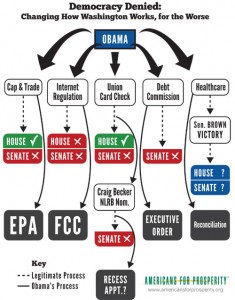It’s the leading story on just about every cable network. “House Democrats are concerned about their security due to increased threats since Sunday’s vote to pass the health care bill.”
A grim-faced House Majority Leader Steny Hoyer held a news conference, where he bemoaned that “a significant number, meaning over 10” Democrats “had reported either threats, vandalism or other incidents. Capitol Police officials have briefed House Democrats on reporting suspicious or threatening activity and taking precautions to avoid ‘subjecting themselves or their families to physical harm,’ said Hoyer, D-Maryland.”
Hoyer was flanked by a chap called Jim Clyburn who mouthed cliches about the lessons of history, and threw the kitchen sink of civil rights, holocaust, homophobia in for good measure.
Most other news outlets ran with this story, against a backdrop of besieged Democrats speaking about the need for security details to guard their homes and families and wallowing in horror stories about a handful of disenfranchised voters who seem to have lost faith in the vaunted American mobocracy. (Your wishes to be left alone are ignored in a democracy?! You don’t say.)
Good luck to you in trying to get a security detail should your family come under threat or should your boyfriend threaten to kill you. The sponger class has no perception of how rarefied and cloistered is its worthless, parasitic existence.
How ludicrous and contemptuous for the political class (and its media sycophants), backed as it is by the tanks that took out tots at WACO, to put on this show—aimed at depicting a tiny number of angry voters who dared to step out of line as Timothy McVeighs in the making.

